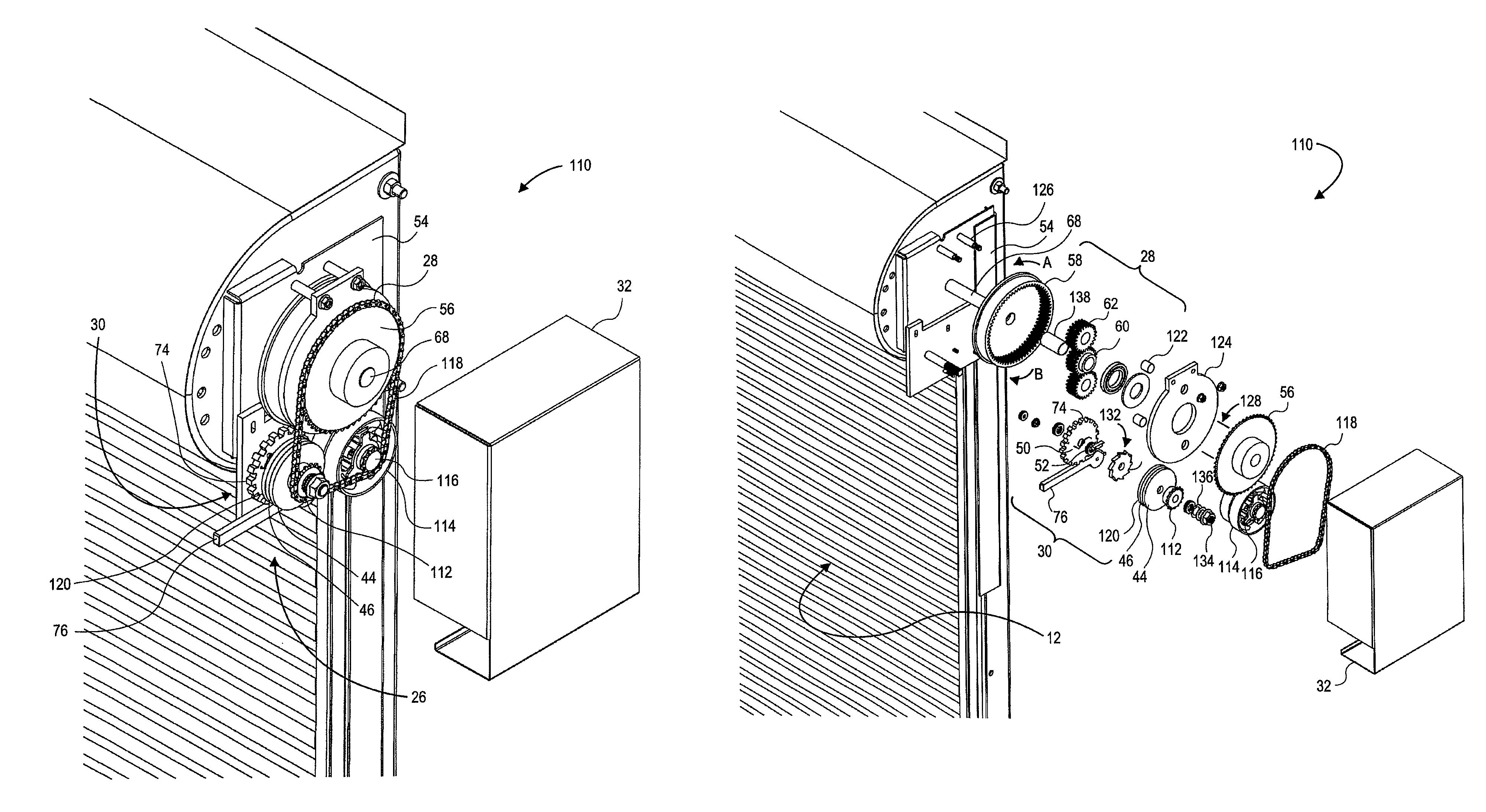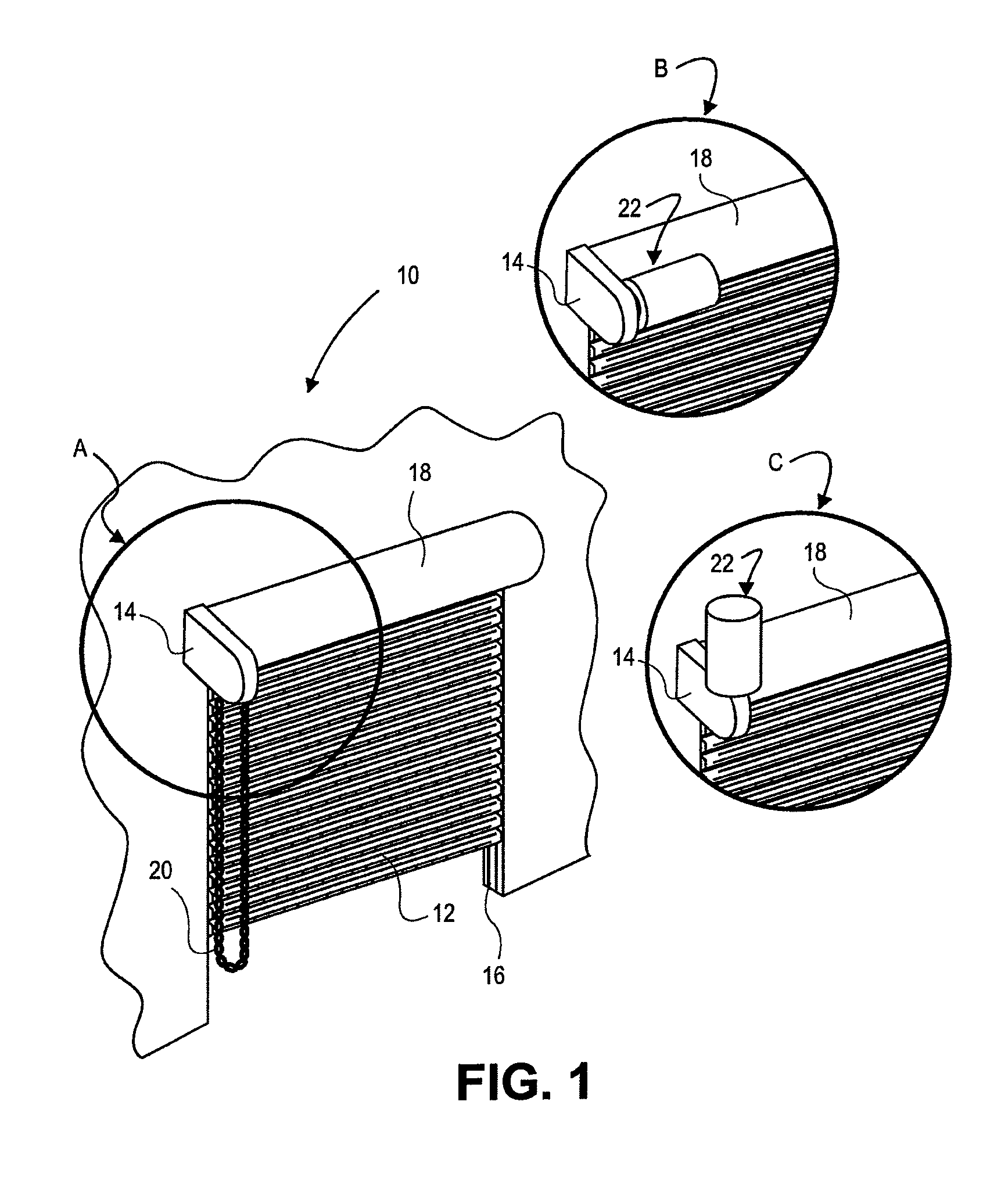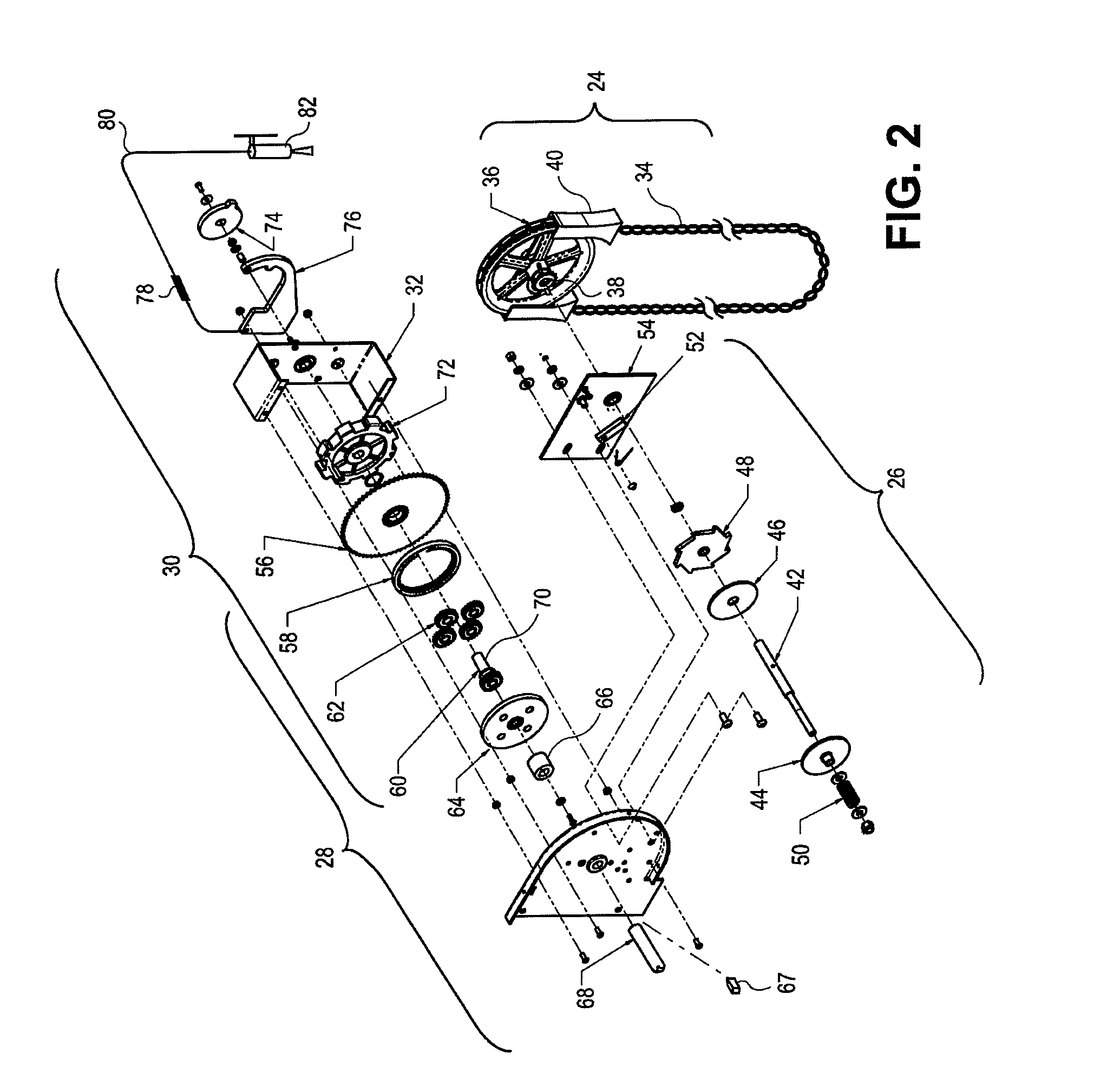Door release mechanism
a technology of door release and door shaft, which is applied in the direction of door/window protective devices, gearing, shutters/movable grilles, etc., can solve the problems of requiring structural alteration of the building to retrofit electronic fire door systems into the existing building, system design, installation and maintenance costs, and the inability to prevent the rotation of the brake drive sprocket, so as to facilitate the free rotation of the door shaft and prevent the rotation of the brake drive sprock
- Summary
- Abstract
- Description
- Claims
- Application Information
AI Technical Summary
Benefits of technology
Problems solved by technology
Method used
Image
Examples
Embodiment Construction
[0032]In various embodiments of the invention a simplified device and system are provided to automatically release a door in response to an event. In a particular example, the device is configured to close a door in the event of a fire. For example, when attached to a door that is biased to close, a release assembly connecting a hoist assembly to the door assembly may be configured to release the door assembly from the hoist assembly in response to a fire or smoke. Released from the hoist assembly, the door may be allowed to close. In another example, the release assembly may be configured to release the door assembly from the hoist assembly in response to a security incident. In yet another example, the release assembly connects the hoist assembly to a door assembly that is biased to open. In this example, the release may be controlled to release the door assembly from the hoist assembly to facilitate egress through the door. In comparison to electronically controlled or computer c...
PUM
 Login to View More
Login to View More Abstract
Description
Claims
Application Information
 Login to View More
Login to View More - R&D
- Intellectual Property
- Life Sciences
- Materials
- Tech Scout
- Unparalleled Data Quality
- Higher Quality Content
- 60% Fewer Hallucinations
Browse by: Latest US Patents, China's latest patents, Technical Efficacy Thesaurus, Application Domain, Technology Topic, Popular Technical Reports.
© 2025 PatSnap. All rights reserved.Legal|Privacy policy|Modern Slavery Act Transparency Statement|Sitemap|About US| Contact US: help@patsnap.com



